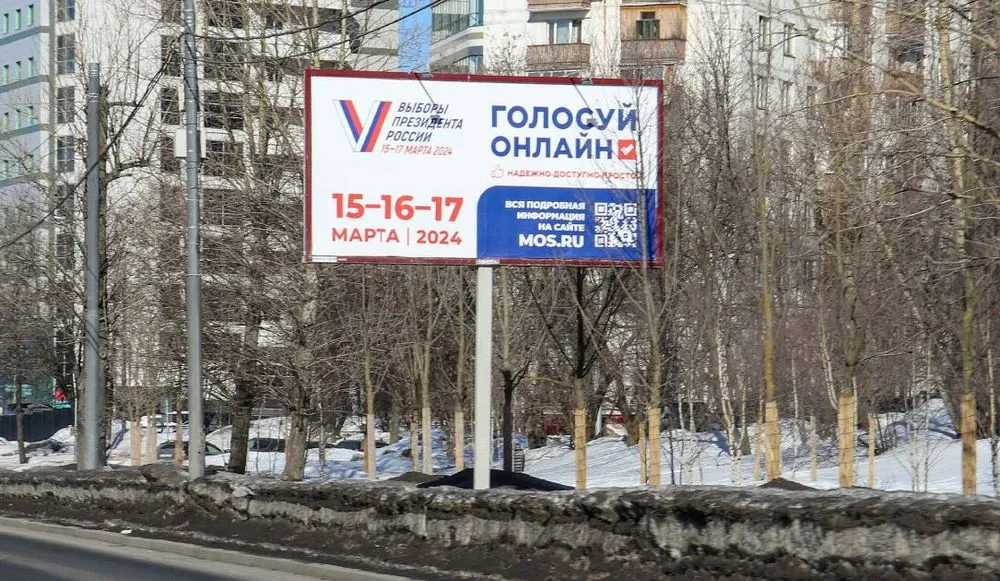Russia says cyberattacks had no impact on presidential election
Cyberattacks targeting Russia failed to have an impact on the country’s elections, Russia’s internet watchdog said, after officials warned of “massive” efforts to disrupt the presidential vote.
According to Evgeny Zaitsev, the head of digital control and supervision at Roskomnadzor, the watchdog agency recorded a “significant number” of distributed denial-of-service (DDoS) attacks on the Russian systems involved in voting, but the attacks “did not affect the election process.”
According to preliminary data, Vladimir Putin is set to win another six-year term with a record 87% of the vote and record turnout of over 77% over the weekend, in an election widely believed to be rigged and characterized by repression and intimidation.
Only a small group of autocratic leaders, including those from North Korea, Iran, and China, congratulated Putin on his victory.
Hackers targeted Russian systems both before and during the election. According to public reports, they primarily conducted DDoS attacks and created phishing websites or fake Telegram channels mimicking official state services.
This year, the voting process in Russia was especially vulnerable to cyberattacks as it was the first time Russia offered citizens from different regions the option to cast their votes online.
“We have noticed a surge of hacker attacks on remote electronic voting resources,” said Russian Ambassador to the U.S. Anatoly Antonov. These attacks were carried out with the help of “Western countries,” he claimed.
Russia's remote electronic voting system did experience disruptions on March 15, the first day of voting, but authorities attributed the temporary failure to the “unprecedented number of applicants” attempting to access the website.
The head of the Russian election commission, Ella Pamfilova, said Monday that Russian electoral infrastructure has experienced more than 12 million DDoS attacks since the beginning of the presidential campaign in February. Authorities blocked 420,000 DDoS attacks on the remote electronic voting system during the three days of the election, she said.
She did not explain how Russia measured these attacks, whose scale would be unusual. For comparison, in 2023 the cybersecurity firm Cloudflare reported mitigating over 5.2 million HTTP DDoS attacks worldwide.
Pamfilova referred to the attacks as a coordinated effort by “the West” to disrupt or discredit the Russian election.
The vice president of Russia’s largest telecom provider, Rostelekom, claimed that the majority of attacks on Russian election infrastructure originated from Ukraine, Western Europe, and North America and were carried out by “professional” hacker groups.
During the election period, hackers also targeted the digital services of Putin’s political party, United Russia, as well as state services in various Russian regions.
Ukraine’s military intelligence (GUR) told Ukrainian media on Saturday that they were behind the attacks on United Russia, as well as the Russian electronic voting system. The authenticity of this claim is hard to verify since no evidence was provided.
The head of Rostelecom, Mikhail Oseevsky, said last week that Russia is in a state of cyberwar with Ukraine’s intelligence.
“GUR is trying to destroy the entire infrastructure that was created for the Russian presidential elections,” he said.
GUR called this statement "another lame attempt by Kremlin cronies to legitimize the illegal elections in Russia, demonstrate power, and justify the rule of their dictator, Putin.”
In addition to launching cyberattacks, Russia also accused Ukraine of engaging in “terrorist activities” to sabotage the presidential election — specifically, missile and drone strikes on the Russian Belgorod region, as well as attacks on Russian oil refineries.
Inside Russia, some citizens also attempted to protest Putin’s reelection. There were several cases of people trying to destroy voting sheets by pouring various liquids into ballot boxes, as well as cases of attempted arson and the deployment of a smoke bomb.
On Sunday, thousands of Russians turned up at polling stations at midday to take part in a peaceful protest called "Noon Against Putin," organized by supporters of the late opposition leader Alexei Navalny. Russia’s opposition activists encouraged them to either spoil their ballot paper or vote for one of three contenders against Putin.
Daryna Antoniuk
is a reporter for Recorded Future News based in Ukraine. She writes about cybersecurity startups, cyberattacks in Eastern Europe and the state of the cyberwar between Ukraine and Russia. She previously was a tech reporter for Forbes Ukraine. Her work has also been published at Sifted, The Kyiv Independent and The Kyiv Post.



